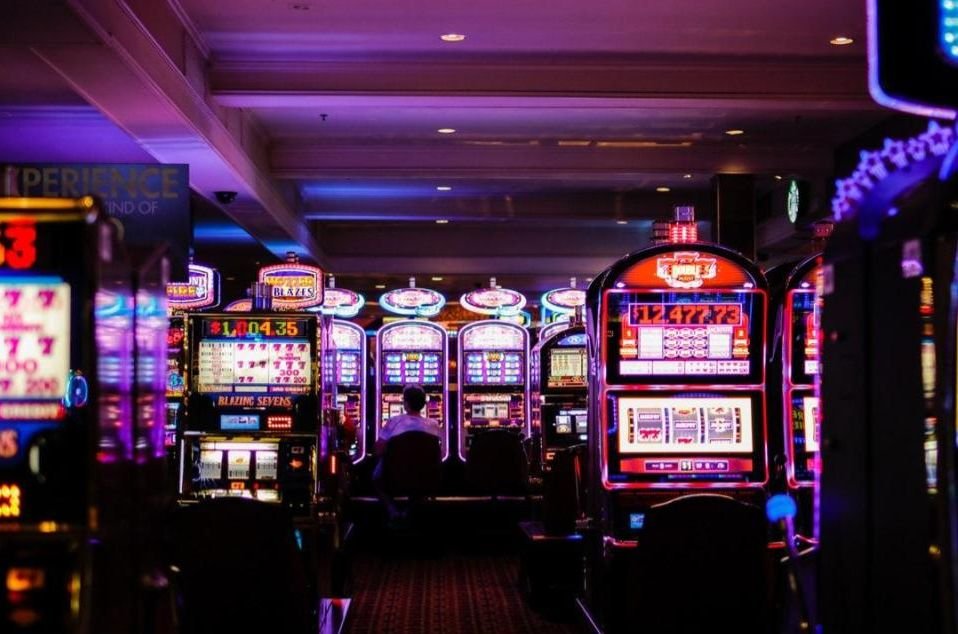Gambling has long held a captivating role in the world of cinema, serving as a thrilling backdrop for tales of chance, luck, and high-stakes drama. From the glitzy casinos of Las Vegas to the clandestine poker games in smoky back rooms, movies have used gambling to explore the complexities of human nature, the allure of risk, and the myriad ways fortunes can change with the turn of a card or the roll of the dice.
This guide delves into the rich lore of gambling in movies, examining iconic scenes, legendary films, and the cultural impact these stories have left behind. Whether you’re a seasoned cinephile or a casual movie lover, the world of cinematic gambling offers a fascinating journey through suspense, strategy, and sheer chance.
The Evolution of Gambling in Film
From the early days of silent films to the blockbuster hits of modern times, gambling has evolved significantly as a cinematic theme. Early portrayals often focused on the mystique and glamour of high-stakes games, with dashing protagonists engaging in tense games of chance. As the film industry matured, more nuanced storytelling began to emerge, incorporating complex character arcs and deeper emotional stakes. Movies like “The Cincinnati Kid” and “The Sting” capitalized on the psychological intensity and strategic depth that gambling scenarios could offer.
In contemporary cinema, filmmakers continue to explore this rich tapestry, often delving into the darker, more pathological aspects of gambling addiction and its impact on personal relationships. Films like “Rounders” and “Uncut Gems” delve deep into the psyche of their characters, portraying not just the exhilaration of wins but also the haunting despair of losses. This evolving narrative reaffirms that gambling in movies is not merely about the games themselves but about the human stories behind them.
Iconic Gambling Movies and Their Legacy
Among the pantheon of gambling films, certain titles stand out for their cultural impact and lasting legacy. “Casino Royale,” for instance, not only revitalized the James Bond franchise but also brought the elegance of casino gambling to a new global audience. The film’s high-stakes poker scenes are legendary, combining the inherent drama of the game with the suave, calculated demeanor of 007.
“Ocean’s Eleven,” both the original and its 2001 remake, encapsulates the glitz, glamour, and audacious spirit of heist films set against a backdrop of Las Vegas casinos. The ensemble cast and intricate plot twists keep viewers on the edge of their seats, making it a perennial favorite. These films, among others, have cemented their status in popular culture, influencing how audiences perceive the world of gambling and its inherent risks and rewards.
The Allure of Casino Settings
Casino settings provide a visually stunning and emotionally charged backdrop for filmmakers. The vibrant lights, opulent settings, and palpable excitement make for a compelling atmosphere that translates well onto the screen. Movies like “Casino” and “21” exploit this setting to the fullest, capturing both the high-stakes glamour and the underlying seediness that pervades these establishments.
The casino environment serves as a microcosm of society, where fortunes can change in an instant and every character harbors a secret. This backdrop allows for a rich exploration of themes like greed, ambition, and hubris. Even online casinos today, with their sleek and modern interfaces, have been inspired by the cinematic portrayal of traditional brick-and-mortar casinos. No matter if you visit spin-ace.com casino, or any other online casino, the allure of casino settings in movies continues to endure. That’s because casinos provide a fertile playground for storytelling, with endless possibilities and unexpected plot twists waiting around every corner.
The Role of Skill vs. Luck in Gambling Films
A persistent theme in gambling films is the interplay between skill and luck. This dynamic is often explored in poker movies, where the tension between a player’s strategy and the unpredictability of the cards is a focal point. “Maverick” and “Rounders” are prime examples, demonstrating not just the techniques and mental fortitude required but also how a single stroke of luck can alter the course of the game.
This theme also taps into a broader philosophical inquiry about control and destiny. Films in this genre frequently ponder whether their protagonists are masters of their fate or simply at the mercy of random chance. This debate resonates deeply with audiences, who may see reflections of their struggles with control and uncertainty in their own lives.
The Psychological Complexities of Gambling Characters
The most memorable gambling characters are often those with rich psychological depth. These characters are more than just gamblers; they are complex individuals grappling with internal and external conflicts. In “The Gambler,” the protagonist’s battle with addiction and self-destruction is as riveting as any casino scene, offering a penetrating look into the darker side of human nature.
Similarly, “Uncut Gems” presents a frantic, immersive portrayal of a man spiraling into chaos, driven by an insatiable craving for high-risk bets. These films offer audiences a window into the psychological complexities of gambling, providing a more rounded understanding of what drives individuals to the tables, often at great personal cost.
The Cinematic Techniques that Highlight Gambling
Directors often employ specific cinematic techniques to heighten the tension and drama inherent in gambling scenes. Close-up shots, rapid cuts, and suspenseful music can amplify the stakes, making viewers feel as if they are right in the heart of the game. Films like “Casino Royale” and “The Cooler” are masterful in using these techniques to build suspense and keep audiences on edge.
Moreover, the use of lighting and set design plays a crucial role in creating the right atmosphere. Dimly lit rooms, smoke-filled air, and opulent décor all contribute to the authenticity and immersive experience of gambling scenes. These careful artistic choices help convey the emotional intensity and gravity of the moments, making gambling a compelling spectacle in cinema.
The Ethical Questions Raised by Gambling Films
While gambling films are often thrilling and entertaining, they also raise important ethical questions. These films frequently explore the moral ambiguities of gambling, such as the seductive allure of quick wealth versus the potential for devastating losses. “Mississippi Grind” and “Hard Eight” delve into how gambling can become a destructive force, tearing apart lives and relationships.
These ethical considerations extend to the portrayal of addiction and the often glamorized depiction of gambling lifestyles. Filmmakers have a responsibility to balance the thrilling aspects of gambling with the harsh realities, providing a more complete and responsible narrative. This nuanced approach ensures that the audience is not only entertained but also prompted to reflect on the broader implications of gambling.
Gambling in movies serves as a multifaceted narrative device that goes beyond portraying just games of chance. It opens up a rich vein of storytelling potential, allowing filmmakers to explore intricate character psyches, delve into societal themes, and create high-tension atmospheres that grip the audience. From the glitzy allure of casinos to the profound struggles with addiction, these films offer a window into both the exhilarating highs and devastating lows associated with gambling.



